As we navigated the steep ridges of the Hajar Mountains, the Sea of Oman stretched out far below us, shimmering in the harsh sunlight. Hiking along the western side of the rocky mountain range on a donkey trail that had been used for decades by the mountain tribes of Ras Al Khaimah, we looked down over date farms to the mangroves that lined the shore of the Arabian Gulf. Formed over 70 million years ago, the mountains are home to Jebel Jais, the UAE’s highest peak and which, at 1,934m, had been our campsite the previous evening.
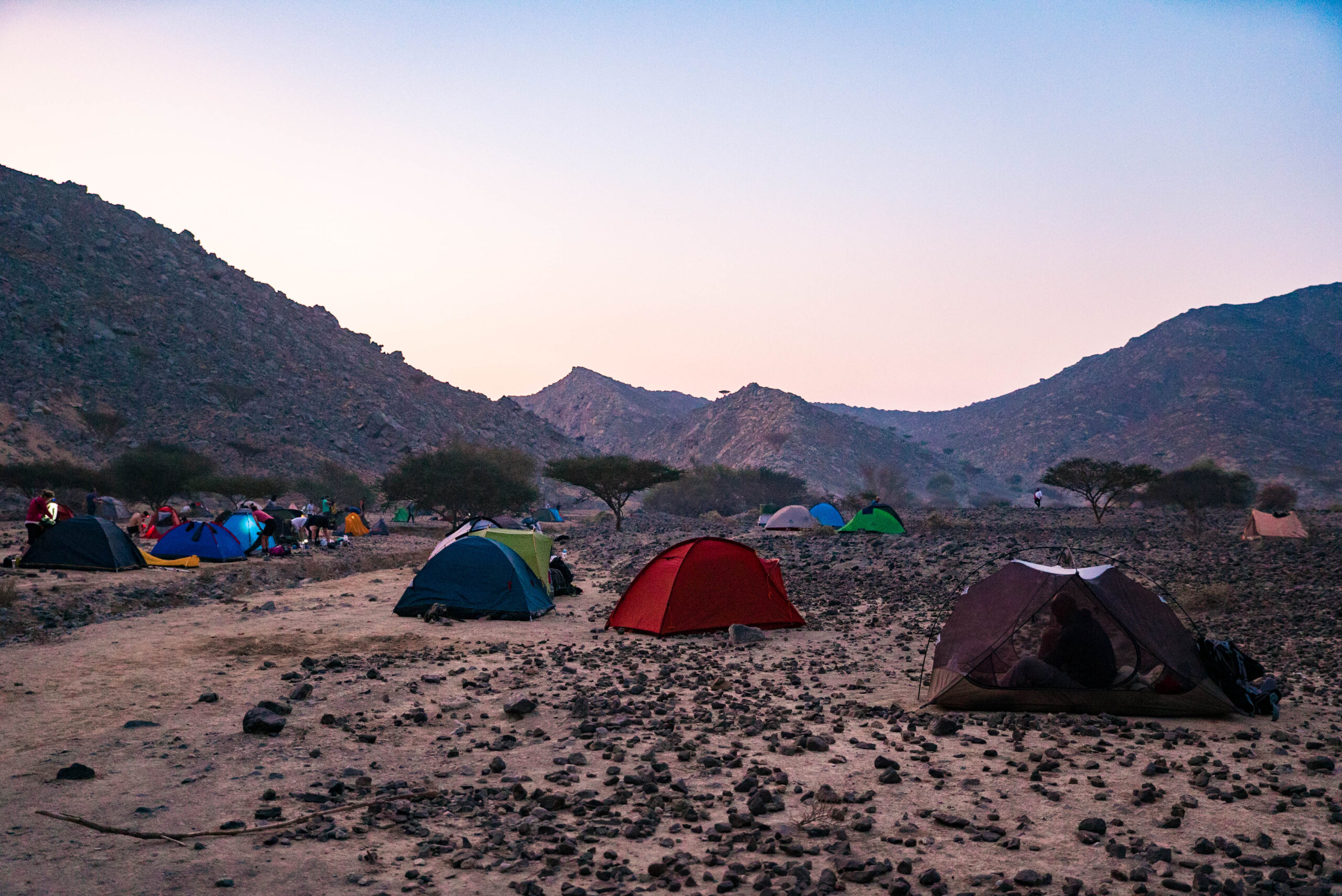
The United Arab Emirates is comprised of seven emirates, but when people talk of travel here, the glistening towering buildings, man-made islands and the indulgent lifestyle of Dubai, Abu Dhabi and Sharjah tend to dominate. With stunning natural landscapes, the northernmost emirate of Ras al Khaimah, often abbreviated to RAK, is an undiscovered gem.

Located between the Hajar Mountains and the Persian Gulf, Ras Al Khaimah's history dates back over 7,000 years. Before oil became the mainstay of the country's economy, the region was known as a centre of pearling. Pearls from the Gulf were famous around the world; nowadays, RAK is probably best known for its beaches and golf course. However, in the eastern part of the emirate are the breathtaking Hajar mountains. 100km wide and 700km in length, the Hajar Mountains straddle RAK and Oman. Spectacular and rugged, towering high over the emirate, the mountains are home to nimble mountain goats, shy mountain foxes, camels, wildcats and the rare Arabian leopard. A dry and desolate place, these mountains were the location of the 3-day, 55km, Highlander UAE hiking challenge. The Highlander UAE trek is part of the Highlander Adventure collection of hikes and the region's ultimate backpacking experience. There are two options to choose from: the 55km three-day Highlander55 or the 30km two-day Highlander Experience - we had gamely opted for the three-day option.
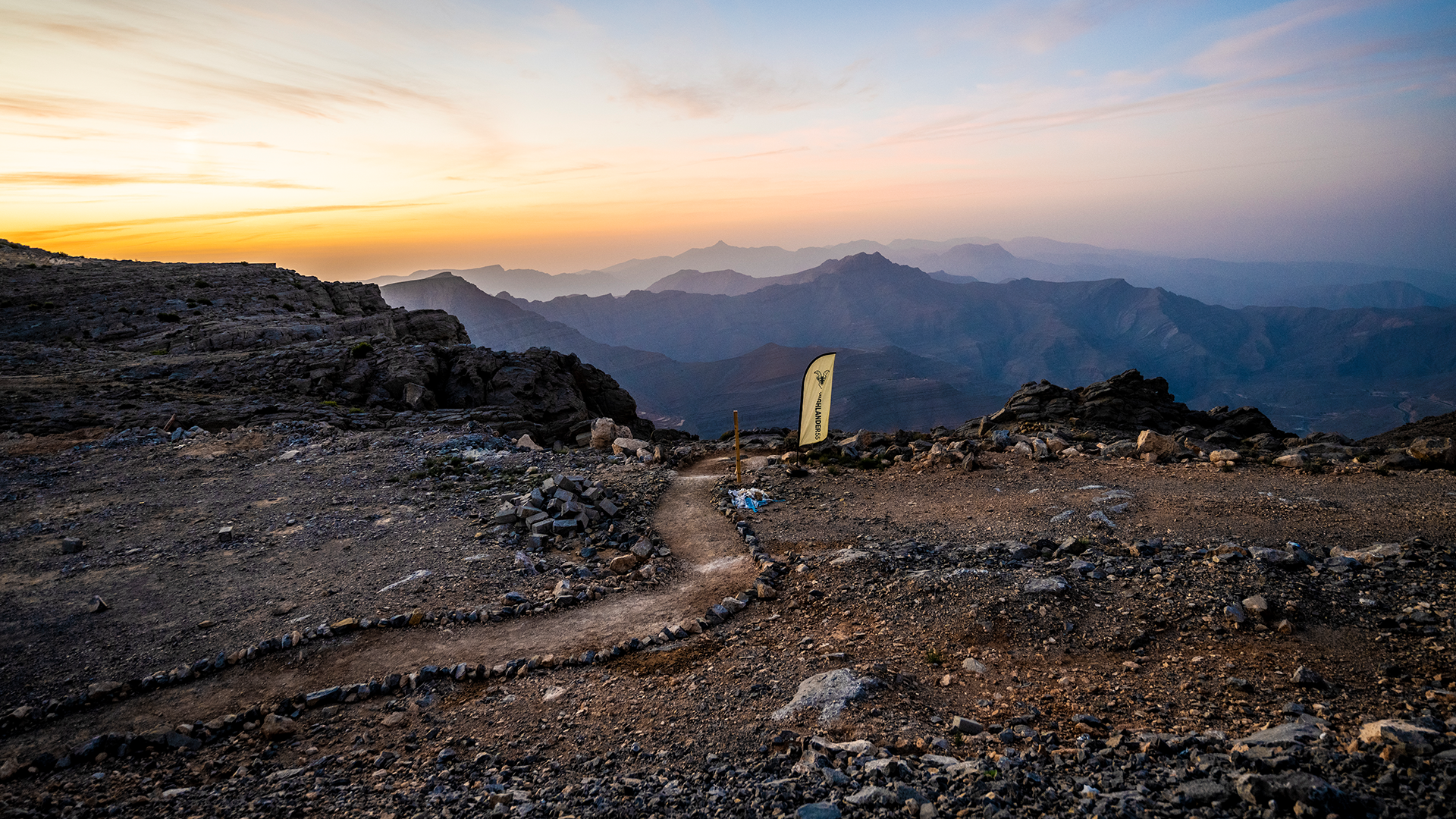
"The gradient was relentless, the temperatures were scorching"
Carrying packs of around 15kg, more than a third of which was water (given the heat and the fact that there were no natural water sources), we started off at the foot of Jebel Jais. We trekked, through a dry river bed, past the occasional tiny, scattered and isolated village, onwards and always upwards. 16km later, the observation area near the top of Jebel Jais was our campsite at the end of day one. The final push to the top at the end of the day had been tough. The gradient was relentless, the temperatures were scorching, though the views went a long way to compensate for the effort, and the official stamp in our ‘trekking passport’ made it official that we had conquered the mountain.

The wind blew across the exposed campsite, making it a bit of a challenge to erect our tent on the hard, pebble-strewn earth. But once we’d established our home for the night, we headed over to chat with some of the other hikers. There were around 60 of us, from all around the world, attempting the 55km route, and we would be joined in the morning by another 40 or so, who were doing the shorter, 30km option.
Some of the more energetic participants attempted some yoga poses and stretches, though most were content to compare blisters and trade stories of various aches and pains. Local mountain tribesmen plied us with delicious Karak tea, a strong, milky spiced tea that’s caramel coloured, incredibly comforting and absolutely delicious. Later they would feed us with traditional spiced chicken mandi and smoky rice, and crispy date doughnut balls for dessert, so delectable that they had me going back for seconds, thirds and fourths!
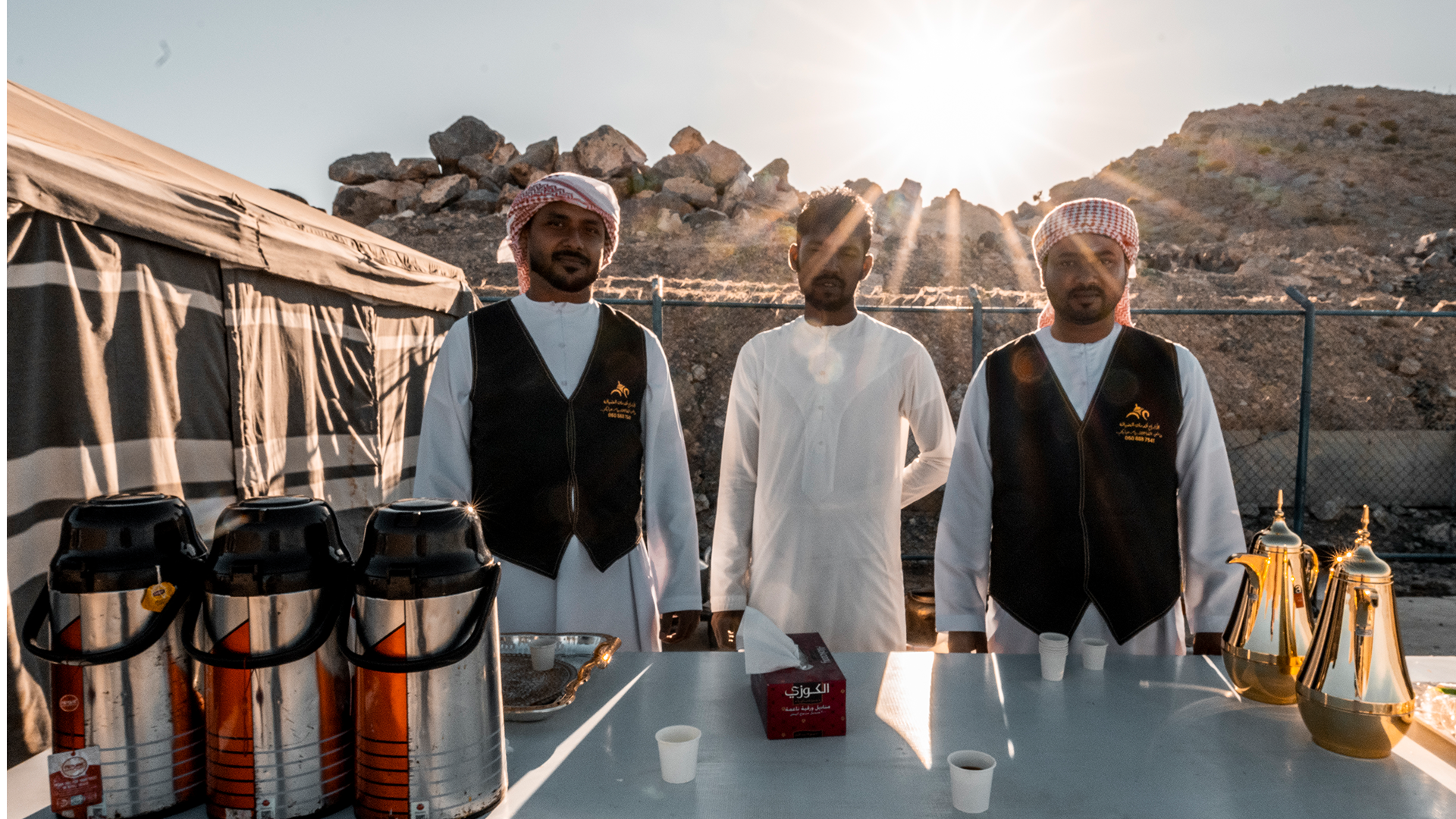
Exhausted from the day’s exertions and with a last cup of Karak in one hand, and a final doughnut in the other, we headed back to our tent and snuggled into our warm sleeping bags.
"we would be forced to abandon the trek"
Day 2 was even tougher. We knew it was going to be a long day and we also knew that if we didn’t reach the first checkpoint by midday, we would be forced to abandon the trek. As the sun climbed in the sky, we began to feel the heat. Reaching the checkpoint well in advance of the cut-off, we took a moment to enjoy the view before hauling our rucksacks back on and trudging onwards. The steep downhill descent was punishing on the knees, and the loose scree made progress even slower. We picked our way along the trail, knowing that one misstep could send us toppling over the edge.
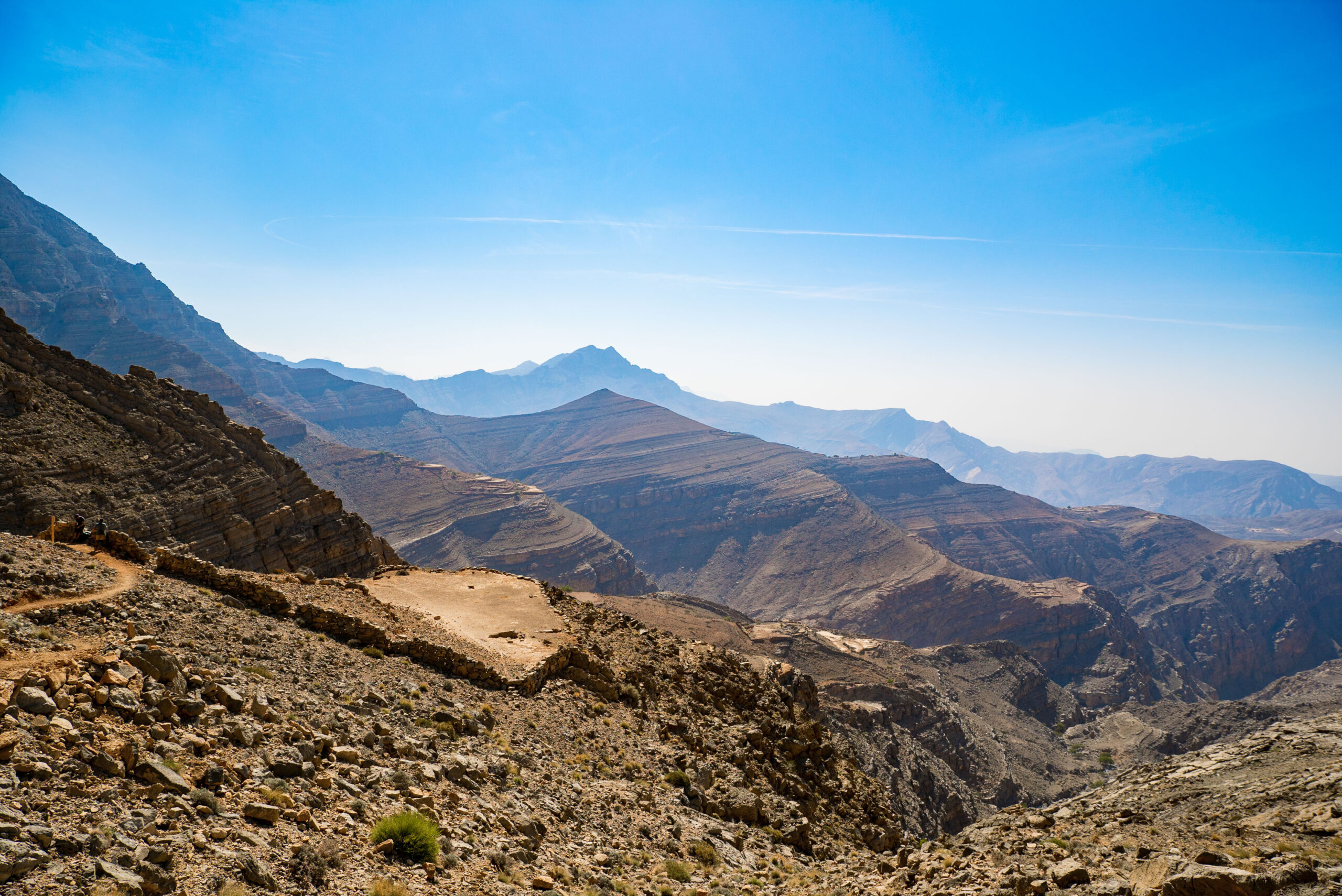
Eight hours later, we spotted the checkpoint that marked the end of the day. Slightly limping by now, we had our ‘passports’ stamped, before carrying on down into the dry wadi, our campsite for the night. My husband, exhausted, stood mutely by as I erected our tent, and once that was done, he stumbled inside, barely moving till morning. As darkness fell, we could see lights from the head torches of other hikers still on the slopes, strung out like fairy lights above us. One by one they arrived, raising cheers throughout the camp.
The final day was 15km of undulating rocky trails to the finish line. In a somewhat surreal touch, there on the sun-baked desert sands, surrounded by the looming ochre hills, stood a Red Bull tent, complete with DJ, playing a continuous mix of house and dance music, for the handful of unwashed hikers who were still on their feet, and a mobile bar served beer and Aperol Spritz.
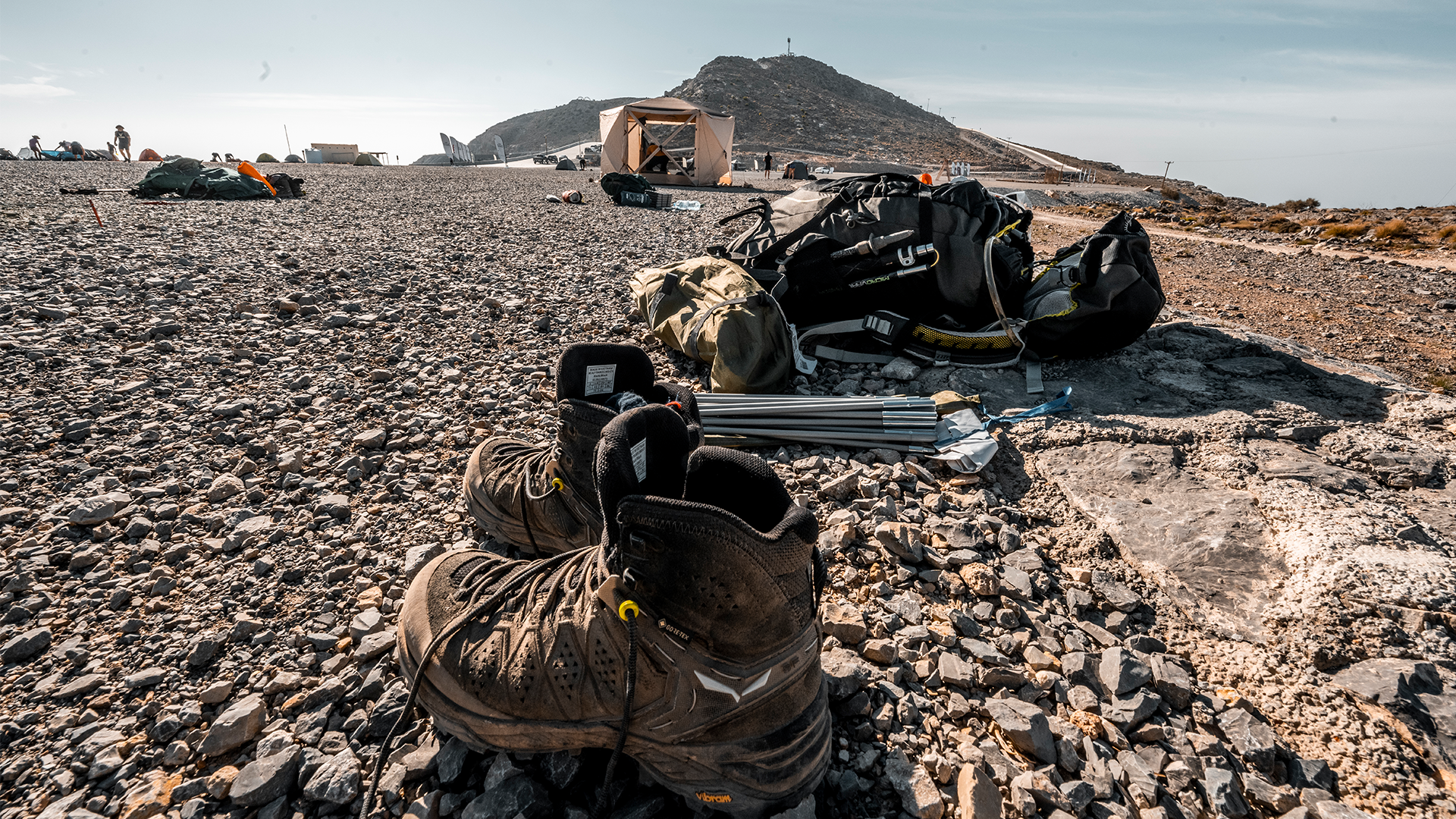
Hiking the mountains of Ras Al Khaimah is like no other experience in the region. The Highlander trail itself is one of the most challenging routes in the UAE. We loved the experience, and I can highly recommend it to those who are fit and looking for a challenge.
Highlander UAE takes place annually in November; for more information visit https://highlanderadventure.com/ras-al-khaimah/en-us
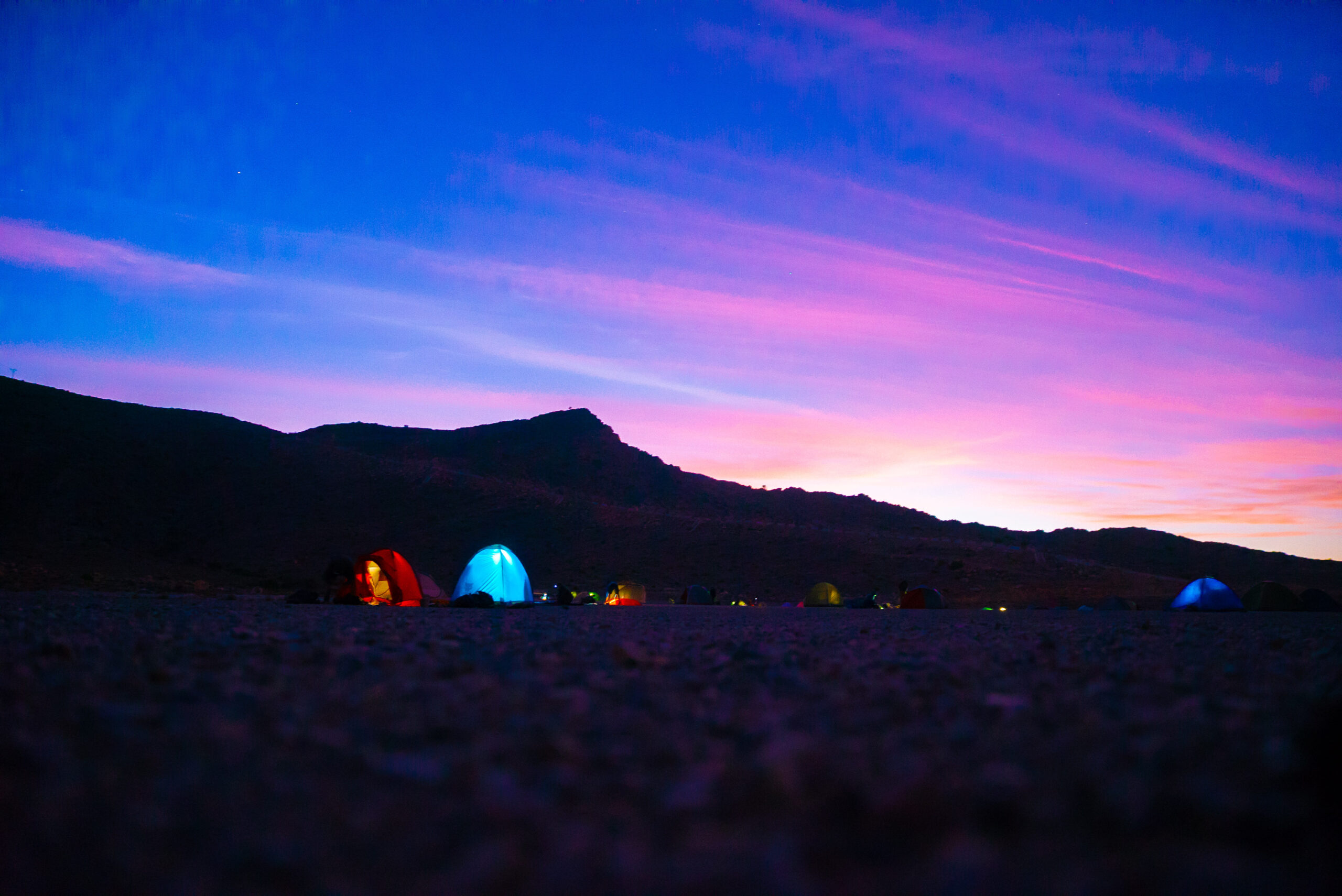
Cover Photo: Looking out over the Sea of Oman. - Credit Predrag Vuckovic













